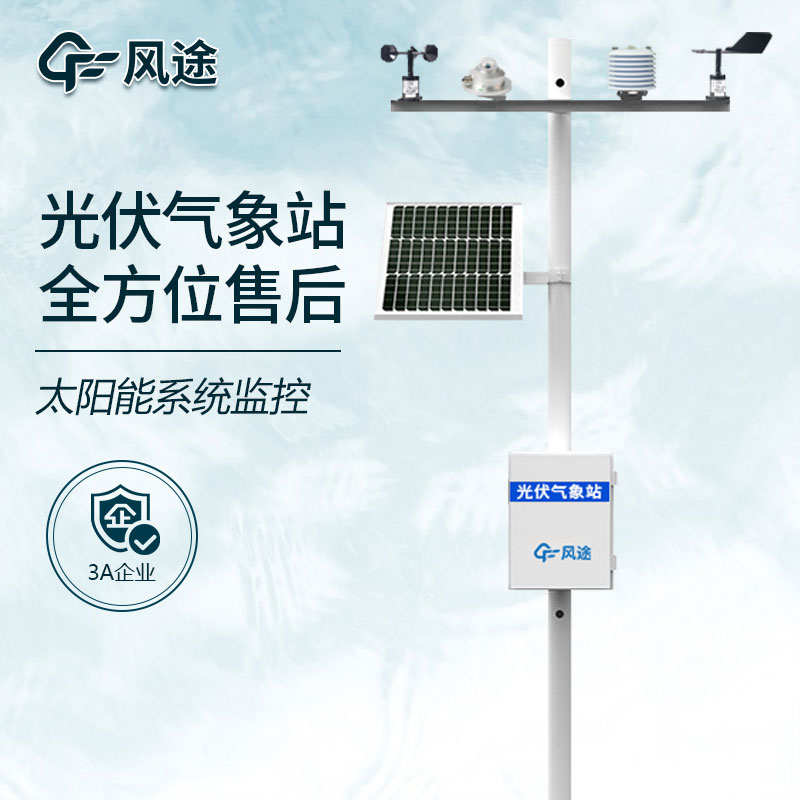Meteorological environment monitoring equipment supplier
Insist on doing high-precision customer favorite technology products
With the growing demand for new energy, solar photovoltaic power generation technology has developed rapidly in recent years. In response to the increasing changes in the environmental conditions of solar photovoltaic power plants, relevant technical engineers have launched photovoltaic environmental monitors to improve the efficiency and stability of solar photovoltaic power generation. This paper will describe the structure, function and function of photovoltaic environmental monitoring instrument.
I. Structure
The basic structure of the photovoltaic environmental monitor consists of the following four parts:
(A) Signal acquisition part: including a variety of sensors such as temperature collector, light radiation collector and wind collector.
(2) Control part: This part includes the network control module and GPRS data transmission module, responsible for data collection and transmission.
(3) Data processing part: This part is responsible for data processing and storage, and provides relevant decision support based on the processed data.
(4) Display part: The display part is usually a touch screen, its main function is to display the data collected by various sensors, as well as recording and alarm information.
Second, the role
Photovoltaic environmental monitor is a device used to monitor and control environmental changes in solar photovoltaic power plants. It can measure, analyze and feedback key data of solar power generation, provide data support, so that people can develop appropriate management strategies. Iii. Function
(1) Temperature detection function: the photovoltaic environmental monitoring instrument can measure the temperature of the photovoltaic electronic components, as well as the temperature of the battery, which is an important indicator to diagnose the impact of climate changes on solar power plants.
(2) illuminance measurement function: the photovoltaic environmental monitoring instrument measures the current illuminance in order to adjust the mirrors in the solar power generation system to ensure that the solar panels receive the maximum solar energy to obtain the maximum electrical energy output.
(3) Wind speed measurement function: the photovoltaic environmental monitoring instrument can measure the current wind speed and direction, which plays an important role in positioning and adjusting the solar array and deciding the cleaning and maintenance of the module surface.
(4) Remote monitoring and control function: the photovoltaic environmental monitoring instrument can remotely monitor the weather status of the solar power plant to achieve intelligent decision-making.
(5) Data analysis and processing function: the photovoltaic environmental monitoring instrument can preprocess and analyze the data of various environmental factors, and achieve intelligent analysis through data mining algorithms, so that people can predict the development trend of solar farms and make corresponding business decisions.
In summary, photovoltaic environmental monitors play an important role in the process of solar power generation. Through accurate measurement and analysis of the environment and system status, it can realize real-time meteorological monitoring of the power plant to ensure the high-quality and stable operation of the solar power system.
